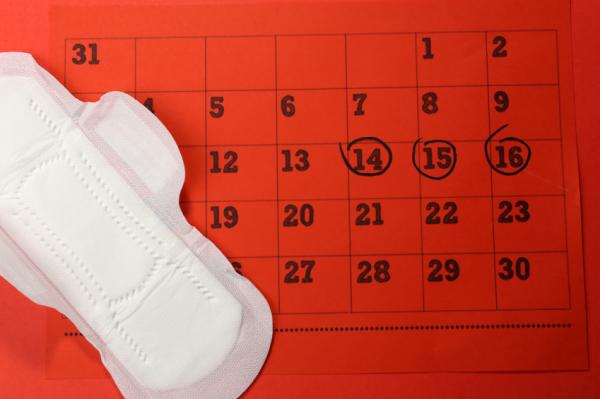Tricks To Make Your Period Come Faster


Waiting for your period to arrive can be frustrating, especially if you have an important event coming up or an irregular cycle. While menstrual cycles can sometimes be unpredictable due to stress, hormonal changes, or lifestyle factors, there are natural ways to help encourage your period to start. Although there’s no guaranteed instant fix, certain home remedies, dietary adjustments, and relaxation techniques may support your body's natural rhythms and promote menstruation in a safe and gentle way.
In this guide by oneHOWTO, we’ll explore proven tricks to make your period come faster, from diet changes to lifestyle adjustments. Learn how to support your cycle naturally.
Steps to follow:
It's important to understand that there is no guaranteed way to instantly bring on your period. Menstrual cycles are complex and influenced by various hormonal factors.
Here are some of the most common reasons:
- Stress: stress can significantly impact your hormones, particularly the hypothalamus, which regulates your menstrual cycle. High levels of stress can delay or even stop ovulation.
- Weight changes: both significant weight loss and weight gain can disrupt your hormonal balance and affect your cycle. Not only that but extremely low body weight or eating disorders can also cause periods to stop altogether.
- Excessive exercise: intense physical activity can sometimes lead to hormonal imbalances, especially if it results in low body fat. This is often seen in athletes.
- Hormonal imbalances: common hormonal disorders, such as polycystic ovary syndrome (PCOS), can cause irregular periods, among other symptoms. Additionally, an overactive or underactive thyroid can affect your menstrual cycle.
- Medications: certain medications, including some antidepressants, antipsychotics, and even some over-the-counter drugs, can affect your cycle.
- Hormonal birth control: can also alter your cycle, and sometimes after stopping hormonal birth control, it can take some time for normal cycles to resume.
- Perimenopause: if you're in your late 40s or early 50s, you may be entering perimenopause, the transition to menopause. This can cause irregular periods.
While there is no magic bullet for instantly starting your period, certain lifestyle adjustments and practices can often help regulate your cycle, particularly when it's experiencing a slight delay. We'll delve into the most effective strategies in the sections that follow:
Heat therapy:
Heat therapy is one of the simplest and most effective methods to ease period discomfort and potentially help regulate menstruation, especially when you're already experiencing pre-menstrual symptoms.
Heat promotes vasodilation, which is the widening of blood vessels. This can increase blood flow to the uterus. This improved circulation may help the uterine lining shed more efficiently, potentially helping your period arrive if it's already close to starting.
How to do it:
- Apply a heating pad to your lower abdomen for 15-20 minutes several times daily. You can also use a hot water bottle wrapped in a thin towel on your lower abdomen.
- Take a warm bath or shower for 15-30 minutes.
- Drink warm beverages throughout the day.
Don't let menstrual discomfort rob you of rest. Learn effective strategies for peaceful slumber during that time of the month.

Herbal remedies:
Several herbs have been traditionally used to help regulate menstruation and potentially induce a period. While individual effectiveness varies and scientific evidence is limited for some herbs, many people find these natural approaches helpful as complementary methods.
- Sage: prepare by steeping 1-2 teaspoons of dried sage leaves in hot water for 5-10 minutes. Not recommended if you're taking hormonal contraceptives.
- Cinnamon: contains compounds that may increase circulation and support uterine health. Make a tea using ½-1 teaspoon of cinnamon powder or a cinnamon stick in hot water.
- Ginger: promotes circulation and may help reduce inflammation. Steep fresh ginger slices in hot water or add to smoothies and foods.
- Parsley: rich in vitamin C and apiol, which may stimulate uterine contractions. Can be consumed as tea or added to foods.
- Turmeric: contains anti-inflammatory properties and may help regulate hormones. Add to warm milk with a pinch of black pepper to enhance absorption.
- Chamomile: may help relax the uterus and reduce stress, which can affect menstrual timing. Enjoy as a calming tea.
- Dong Quai: often called "female ginseng," has been used in traditional Chinese medicine for menstrual regulation. Available as tea or supplement.
Keep in mind that herbs work gradually rather than instantly, since they support your body's natural processes. Also, effectiveness varies significantly between individuals.
Did you know that a vitamin found in your morning orange juice might help regulate your menstrual cycle? Learn about how vitamin C can help you regulate your menstrual cycle.

Sexual activity:
Sexual activity, particularly when it leads to orgasm, may potentially influence the timing of menstruation. This is because orgasms can trigger mild uterine contractions, which might help initiate menstrual flow if your period is already close to starting. Sexual activity can also increase the release of prostaglandins, hormone-like substances that help the uterus contract.
The stress-reducing effects of sexual activity can be beneficial as well, since stress is known to affect hormonal balance and may delay periods. Some research suggests that regular exposure to a partner's pheromones may help regulate menstrual cycles, though evidence is limited. Additionally, sexual arousal increases blood flow to the pelvic region, which may support the shedding of the uterine lining.
It's important to note that these effects are typically mild and most effective when your period is already close to starting naturally. Results vary significantly between individuals, and there's no guarantee this method will work.
Sexual activity is not recommended as a primary method to induce menstruation if you suspect pregnancy, and always practice safe sex, especially when your period status is uncertain.

Physical activity and exercise:
Regular moderate exercise can help regulate hormones and potentially influence menstrual timing. Increased physical activity enhances blood circulation throughout the body, including to the pelvic region. Activities like brisk walking, jogging, swimming, or yoga may be particularly beneficial.
Incorporate gentle abdominal exercises that create mild pressure on the uterus. Light core work such as modified crunches or gentle supine twists may help stimulate blood flow to the area. Avoid intense abdominal workouts as these can actually create stress in the body.
There are also several yoga poses that can make your period come. Especially those that target the pelvic region and may help stimulate menstrual flow. Practice poses like Child's Pose, where you kneel and rest your torso forward on the ground with arms extended.
However, it is important to keep in mind that excessive or intense exercise can actually delay menstruation, so maintaining balance is key. Aim for 30 minutes of moderate activity daily rather than sudden intense workouts.

Stress management:
Stress is one of the most common factors that can delay menstruation because it directly impacts your hormonal balance. In fact, high stress levels trigger the release of cortisol, which can suppress reproductive hormones and interfere with your menstrual cycle.
Here's how to effectively manage stress to potentially help your period arrive:
- Practice deep breathing exercises for 5-10 minutes, three times daily. Focus on slow, diaphragmatic breathing. This activates your parasympathetic nervous system, counteracting stress hormones.
- Try progressive muscle relaxation by tensing and then releasing each muscle group in your body, starting from your toes and working up to your face. This practice reduces physical tension that often accompanies stress and can interfere with normal hormonal function.
- Meditation can be particularly effective for reducing stress that may be delaying your period. Even just 10 minutes daily can make a difference. Use guided meditations specifically designed for reproductive health or general stress reduction.
- Establish a consistent sleep schedule by going to bed and waking up at the same times each day. Aim for 7-9 hours of quality sleep nightly. Your body produces and regulates hormones during sleep, making it crucial for menstrual regularity.
It is also important to limit caffeine and alcohol consumption, as both can increase cortisol levels and disrupt sleep patterns, potentially delaying your period further. The mind-body connection plays a crucial role in reproductive health. Explore our in-depth analysis of how emotional factors influence your monthly cycle.

If you want to read similar articles to Tricks To Make Your Period Come Faster, we recommend you visit our Sentimental relationships category.
1 www.ncbi.com.










